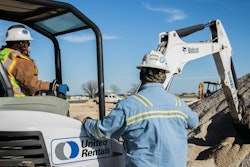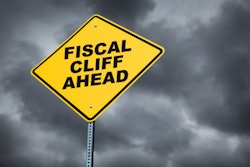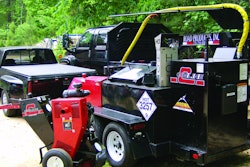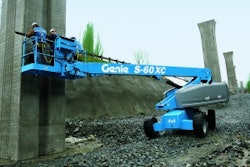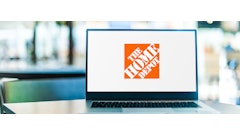
At the Associated Equipment Distributors Executive Forum in September, discussion of two important issues pointed to what I believe is a permanent shift in construction equipment usage toward rental:
1. The construction recovery is not expected until 2014-15, and maybe 2015-16 if Congress fails to address the fiscal cliff issue by the end of the year.
2. Dealers stated their “rental business is exploding” and moving toward pure rent-to-rent transactions.
Ed Sullivan, chief economist for the Portland Cement Association, and David Raso, the equipment industry analyst for International Strategy and Investments, were there to discuss the market. Ed was the first speaker on the agenda and David was the last. What was amazing is they both arrived at basically the same conclusion — that the construction recovery will be slow and will not make major strides until the jobs market strongly recovers and consumer confidence is restored.
From a contractor’s perspective, I believe it’s safe to say if you are in non-energy related markets, it would be prudent to keep your powder dry, avoid debt, keep expenses low and continue to find ways to get enough work to keep the doors open and even eke out a profit. And as always, cash is king.
On the rental side, I believe this explosion of dealer rentals is a permanent shift in the dealer business. In fact, some participants asked me if I thought we were heading for the European model, where the bulk of construction equipment on a jobsite is rented. I think we are.
Contractors lacking capital to buy new equipment have figured out that the commodity-type units are cheaper to rent than own. Not only are they renting more, but they are also sticking with the rent-to-rent transactions and avoiding rent-to-sell (RTS) options. Some dealers who have a lot of RTS deals are saying they are scared that most of the machines will be returned and wind up back on their books.
Rental has disrupted the equipment markets. Manufacturers' production quotas are going up in smoke as dealers defer buying new units because they still have to move the units that have been in their rental fleets. In short, equipment inventories are building at both the dealer and OEM levels.
One commentator mentioned that more than 50 percent of OEM equipment sales are now going into the rental channel.
Putting the shift into perspective
What does this mean for contractors? Quite a lot, in fact.
- The rental acceleration supports the premise I have been making for some time — that rental will become the primary supplier of equipment on jobsites.
- The buildup of new-equipment inventories provides attractive terms if you really have to own a unit on which you get at least 65% utilization.
- Used-equipment values are flattening out I suspect because new inventories are building, contractors are not buying, and rental-fleet purchases for the year are finalized.
I’m glad to see contractors finally realizing the true cost to own and operate equipment compared to equipment rental. Hopefully, more contractors realize that owning a full fleet of equipment may not be as attractive as it has been in the past.
For those of you who still prefer to own your fleet, I encourage you to cost out that option and compare your balance sheet now against a balance sheet where rental is used as the primary source of equipment utilization. I assure you your bank will love you a lot more without the fleet on your books.
So what do you think? Is this a paradigm shift? From my perspective, there are more reasons to believe it is and will remain so for years to come. Your comments would be appreciated.
How to get a workers comp refund
I want to thank the Alper Agency for their three-part series on workers compensation insurance. If you paid attention, there is “free money” to be had by applying what you read.
One way to find out if you were overcharged for workers comp premiums is to have Alper use its Audit Rate department review your employee allocations, rates and actual premium (including final audit) charges to see if a refund is due. This process provides a couple of benefits. If you were overcharged, you get a refund. If you find errors in the policy, you will know what they are going forward, which allows you to take steps to avoid them. In either case, it means more dollars in your pocket.
Just so you know, there is a success fee (percent of refunds) if Audit Rate finds you some dollars. I use them all the time and seldom walk away without some sort of refund. You can contact Bobette Puckett at 312-867-7351 or [email protected] for more information.
Garry Bartecki is the managing member of GB Financial Services LLP and VP Finance for the Associated Equipment Distributors. He can be reached at (708) 347-9109 or [email protected].





